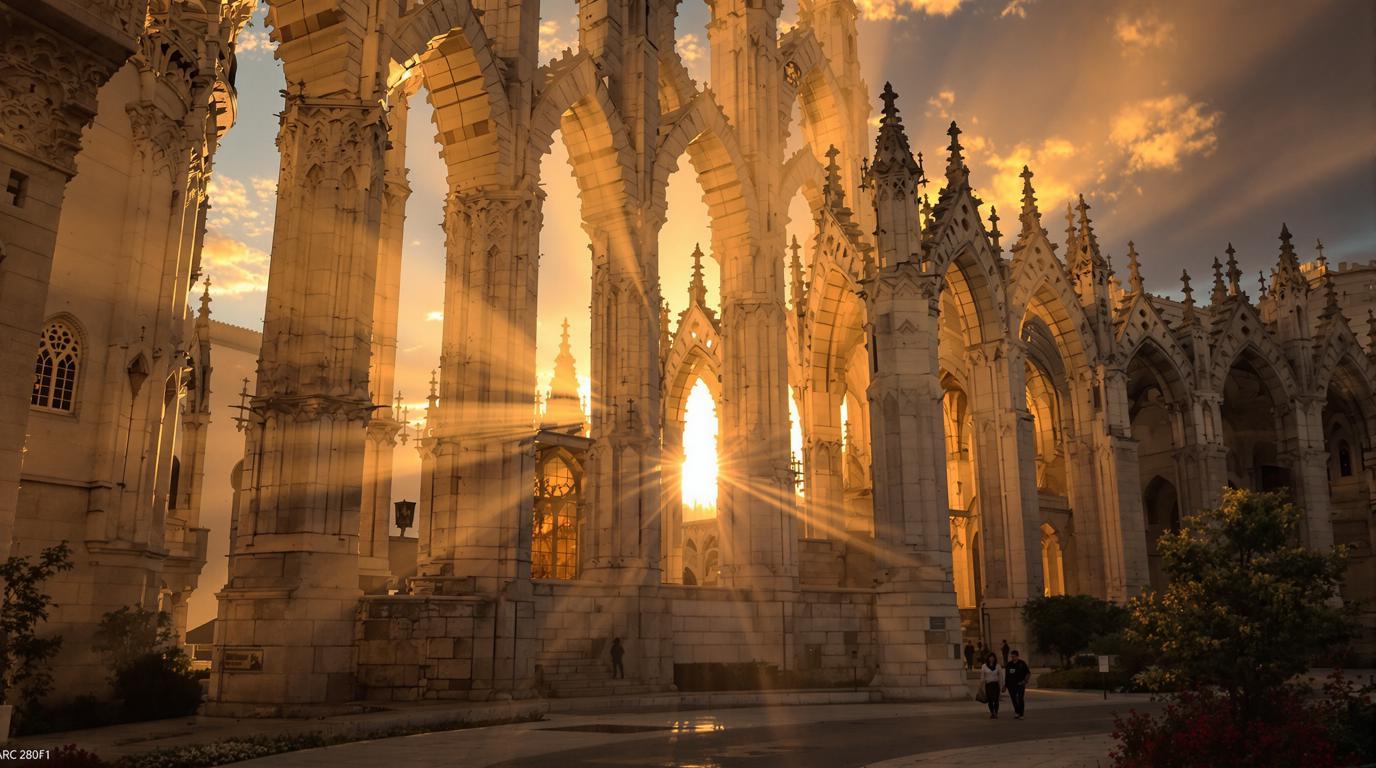Batalha’s 14th-century monastery stands as a stone masterpiece where sunlight dances across intricate Manueline carvings each morning. This small Portuguese town, whose name literally means “battle,” commemorates a defining moment in the nation’s history – the 1385 Battle of Aljubarrota that secured Portugal’s independence. Unlike its famous neighbors Fátima and Nazaré, Batalha offers travelers a rare glimpse into Portugal’s soul without the overwhelming crowds.
The stone symphony that took 200 years to complete
The UNESCO-listed Mosteiro da Batalha represents one of Europe’s most ambitious medieval construction projects. King João I commissioned this Gothic wonder after promising to build a monastery if victorious against Castile’s forces. What followed was two centuries of meticulous stonework.
“Our monastery tells Portugal’s story through stone. Each carving represents the hands of generations of master craftsmen who dedicated their lives to creating something eternal,” explains Miguel Santos, local historian and tour guide.
The monastery’s highlight remains the Capelas Imperfeitas (Unfinished Chapels) – an octagonal mausoleum with elaborate stone lacework left eternally incomplete. Their skeletal arches reach skyward like delicate fingers frozen in time, creating what many photographers consider Portugal’s most hauntingly beautiful architectural feature.
A battlefield that changed European history
Just 3 kilometers from town lies the actual battlefield where Portugal secured its independence against overwhelming odds. The Centro de Interpretação da Batalha de Aljubarrota offers a surprisingly immersive experience, using multimedia displays to transport visitors to August 14, 1385, when Portuguese forces defeated a Castilian army twice their size.
For history enthusiasts seeking similar monuments to pivotal moments, ancient citadels with dramatic historical significance offer comparable experiences of standing where history was made.
The sensory park where accessibility meets nature
One of Batalha’s hidden gems is the Ecoparque Sensorial da Pia do Urso, a unique nature park designed to be fully accessible to visitors with visual impairments. Trails feature braille signage and sensory stations where everyone can experience the Portuguese countryside through touch, smell, and sound.
Those seeking similarly immersive natural experiences might appreciate Scotland’s singing beaches, where nature creates equally enchanting sensory experiences.
Where to find authentic Portuguese flavors
Batalha’s culinary scene revolves around simple, hearty dishes that reflect central Portugal’s agricultural heritage. Local restaurants like Vintage Restaurante serve traditional favorites including succulent leitão (roast suckling pig) and bacalhau (salt cod) prepared according to centuries-old recipes.
“Our cooking isn’t fancy, but it carries the essence of our land and history. When you taste our olive oil and wine, you’re tasting Batalha itself,” says Maria Cardoso, owner of a family-run restaurant near the monastery.
Culinary travelers might draw parallels to authentic Mexican taquerias, where local flavors similarly tell the story of place and tradition.
The perfect day trip combination
Batalha’s central location makes it ideal for combining with visits to nearby attractions. Within an hour’s drive, travelers can experience the religious pilgrimage site of Fátima, the medieval walled town of Óbidos, and the spectacular giant waves of Nazaré where surfers chase world records.
Those drawn to historic European towns might also appreciate medieval French towns with similarly rich historical significance and architectural beauty.
For nature enthusiasts, the nearby limestone caves of Grutas da Moeda offer an underground adventure through chambers filled with otherworldly formations, much like hidden Alpine wonders that leave visitors equally speechless.
Batalha captivates not through grand gestures but through quiet authenticity. Here, beneath Gothic spires that have witnessed centuries of Portuguese history, you’ll find a Portugal that exists beyond tourist brochures – a place where stone tells stories, battlefields whisper of courage, and the simple pleasure of a locally-produced wine enjoyed in the shadow of a masterpiece reminds us why we travel in the first place.
